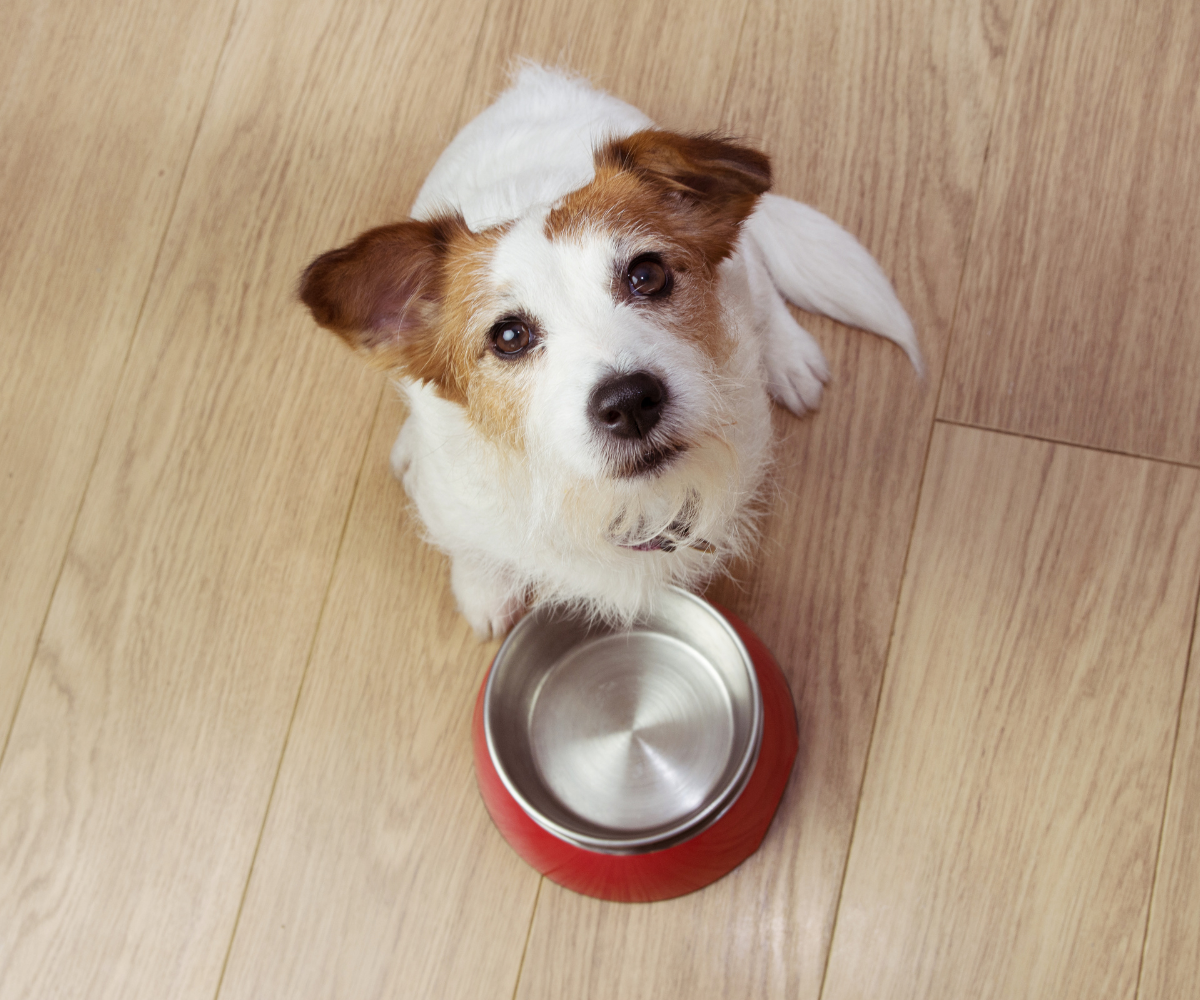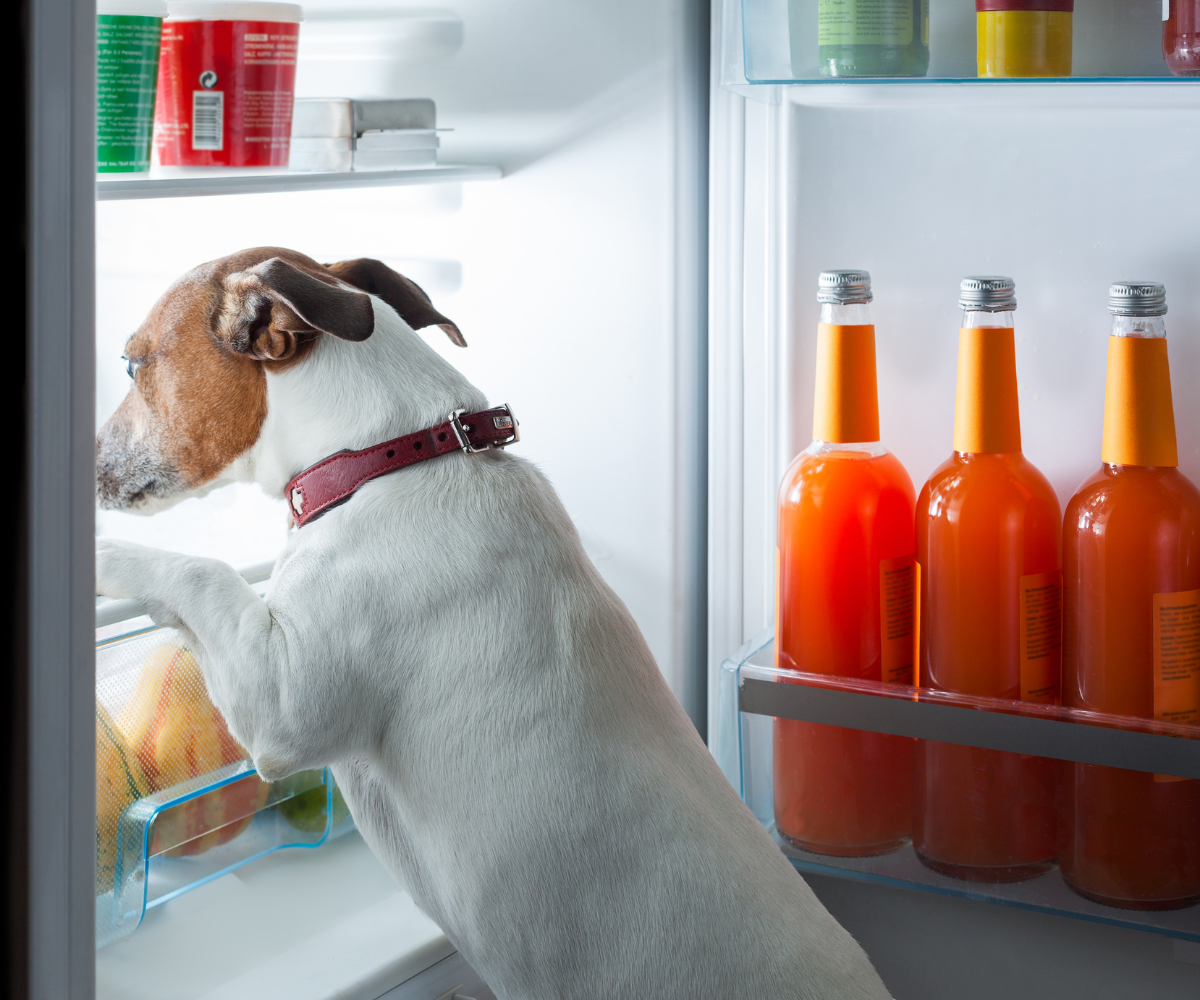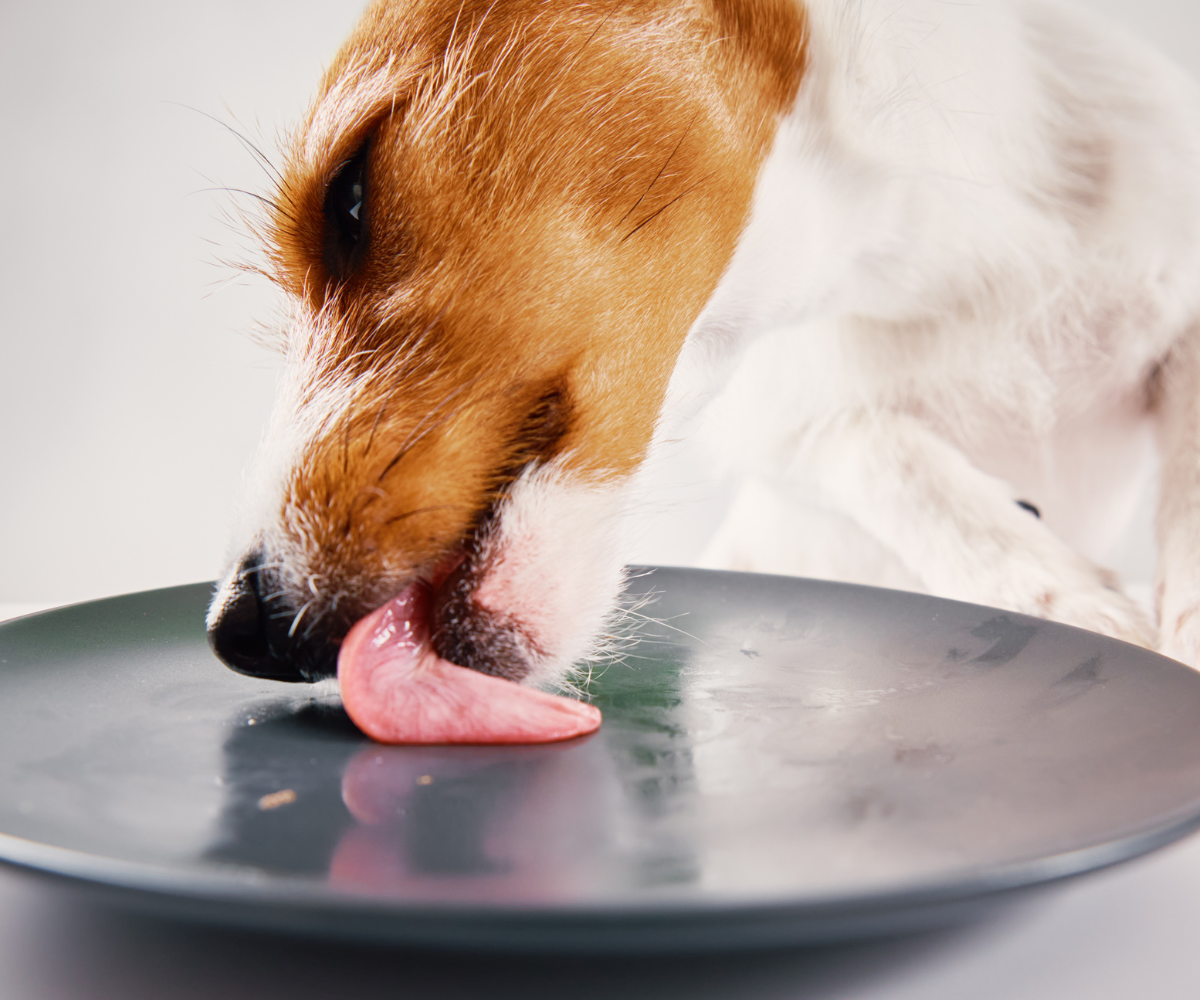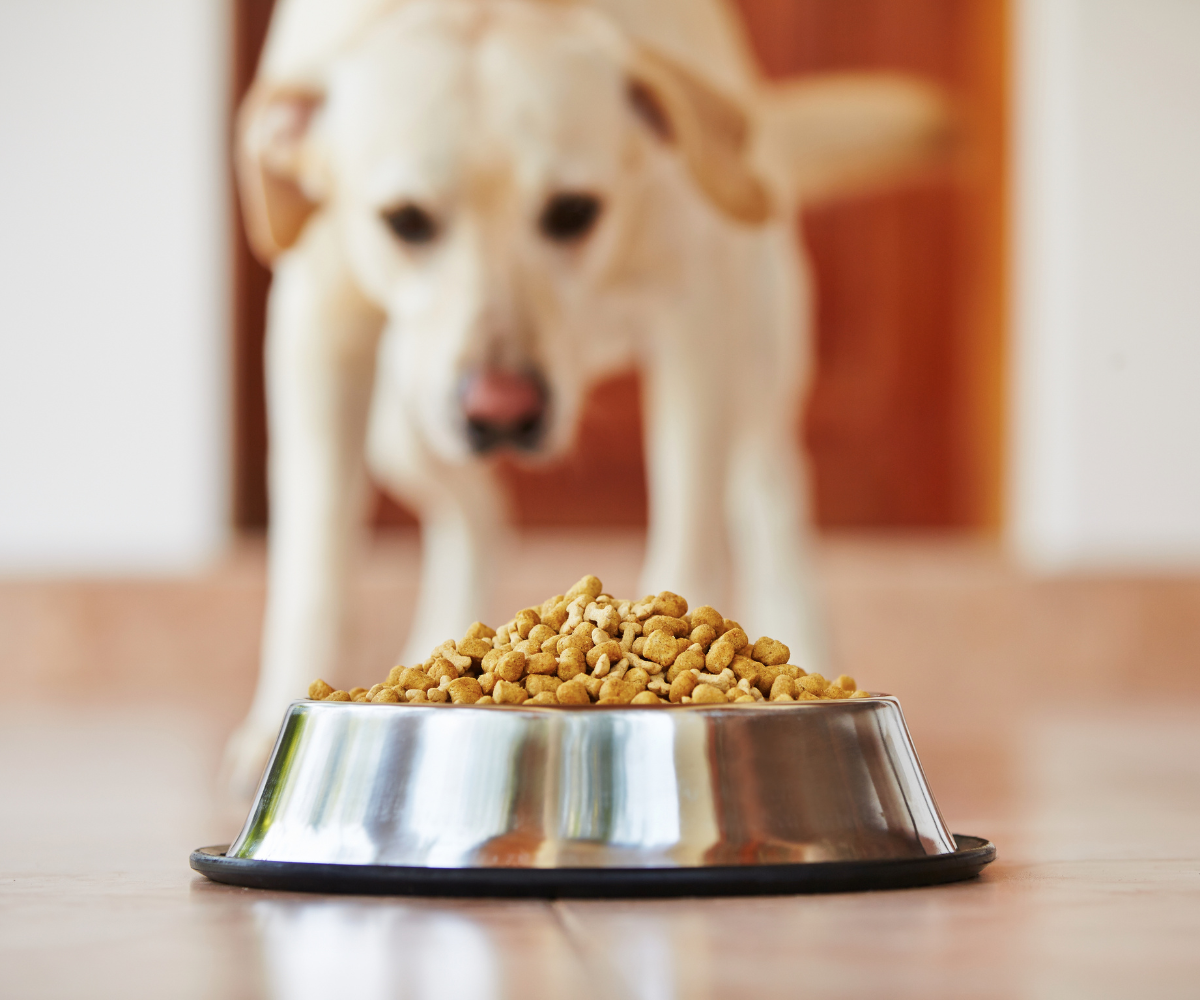10 Reasons Why Your Dog Is Always Hungry
10 Reasons Why Your Dog Is Always Hungry

Vet Reviewed

By: Sarah Hodgson
March 11, 2024
Table of Contents
Dogs are known for their love of food and their seemingly insatiable appetites. However, when a dog is always hungry, it can be concerning for pet owners. In this article, we will explore 10 possible reasons to why your dog may be constantly craving food.
Let's dive in!
Understanding Your Dog's Basic Needs
Before we jump into the ten reasons let's first understand why your dog is always hungry.
Dogs, like humans, require a balanced diet to maintain good health and energy levels. Age is an important factor to consider when it comes to your dog's nutritional needs. Puppies require more calories and nutrients than adult dogs, as they are still growing and developing. Senior dogs, on the other hand, may have different nutritional requirements due to changes in their metabolism and activity levels.
Nutrition is key when it comes to keeping your dog healthy and satisfied. A diet that is high in protein and nutrient-dense food can help keep your dog feeling full and satisfied. It's also important to monitor your dog's daily caloric intake, as overfeeding can lead to weight gain and other health issues.
In addition to providing a balanced diet, it's important to make sure your dog is getting enough exercise and mental stimulation. Regular exercise can help your dog maintain a healthy weight and burn off excess energy, while mental stimulation can help prevent boredom and reduce the likelihood of overeating.
10 Reasons Why Your Dog Is Hungry

1. Stress and Boredom
Stress and boredom are common reasons why dogs may act hungry all the time. When a dog is feeling anxious or bored, they may turn to food as a way to cope or entertain themselves. This can lead to overeating and constant hunger.
One way to determine if your dog is experiencing stress or boredom is to observe their behavior. Do they seem restless or lethargic? Are they constantly seeking attention or engaging in destructive behavior? If so, it may be a sign that they need more mental and physical stimulation.
Note
It's important to note that while stress and boredom can contribute to constant hunger, it's not the only factor. If your dog's behavior persists despite efforts to reduce stress and boredom, it's important to consult with a veterinarian to rule out any underlying medical conditions.
2. Genetics
Some dog breeds are genetically predisposed to being hungrier than others. For example, studies have shown that Labradors and Flat-Coat Retrievers with a deletion in the Canine POMC Gene are more likely to have weight and appetite issues. This gene variation affects the part of the brain that regulates hunger and feeling full after a meal. It's estimated that up to one in four Labs carry this variant, making them more susceptible to obesity.
If you have a breed that is known for having a larger appetite, it's important to monitor their food intake and make sure they are getting the right amount of nutrition. This may involve adjusting their diet or providing more opportunities for exercise.
3. Diabetes
Diabetes is a common cause of increased hunger in dogs. In dogs with diabetes, the body cannot properly regulate blood sugar levels, causing an increase in appetite. Diabetic dogs lack insulin, which is needed to transport glucose into cells for energy, leading to increased hunger. Additionally, the excess sugar in the bloodstream is not being utilized, resulting in frequent urination and increased thirst.
Dogs with diabetes may also experience weight loss, lethargy, and vomiting. If left untreated, diabetes can lead to serious health complications such as blindness, kidney failure, and even death.
If a dog is suspected to have diabetes, it is important to take them to a veterinarian for proper diagnosis and treatment. Treatment for diabetes in dogs typically involves insulin therapy, a special diet, and regular exercise.
4. Metabolic disorders
Metabolic disorders are another potential cause of increased appetite in dogs. These disorders can affect the way your dog's body processes food and nutrients, leading to an insatiable hunger.
One example of a metabolic disorder that can cause increased appetite is diabetes mellitus. Dogs with diabetes may experience an increase in appetite as their bodies try to compensate for the lack of insulin production. Other symptoms of diabetes in dogs include increased thirst, frequent urination, and weight loss.
Another metabolic disorder that can cause increased appetite is Cushing's disease which we'll dive into next. This condition is caused by an overproduction of cortisol, a hormone that regulates metabolism. Dogs with Cushing's disease may experience an increase in appetite, as well as other symptoms such as weight gain, lethargy, and increased thirst.
4. Cushing's disease
Cushing's disease, also known as hyperadrenocorticism, is a common hormonal disorder in dogs that can cause excessive hunger. Dogs with Cushing's disease produce too much cortisol, which is a hormone that regulates metabolism and helps the body respond to stress.
The symptoms of Cushing's disease can be varied and may include increased thirst and urination, hair loss, panting, and a pot-bellied appearance. Often, owners report that their first clue that something might have been wrong was their dog wanting to go out at night to urinate. The disease causes extreme hunger, which can lead to weight gain and obesity if left untreated.
If a dog is suspected of having Cushing's disease, a veterinarian may run diagnostic tests to confirm the diagnosis. Treatment for Cushing's disease may include medication, surgery, or a combination of both. FDA-approved medications can help manage the disease, while surgery may be necessary in some cases to remove the tumor causing the excess cortisol production.
4. Exocrine pancreatic insufficiency (EPI)
Exocrine pancreatic insufficiency (EPI) is a condition in which the pancreas is unable to produce enough digestive enzymes to properly break down food. This results in malabsorption, malnutrition, and weight loss. EPI is most commonly caused by chronic pancreatitis, but there are several additional causes that exist, including pancreatic tumors, pancreatic surgery, and cystic fibrosis.
In dogs, EPI is most commonly seen in German Shepherds, but it can occur in any breed. Symptoms of EPI in dogs include increased appetite, weight loss, diarrhea, and excessive gas. If left untreated, EPI can lead to severe malnutrition and even death.
Treatment for EPI in dogs involves enzyme replacement therapy (ERT), which involves giving the dog oral pancreatic enzyme supplements with meals. These supplements help to break down the food and allow for proper digestion and absorption of nutrients. It is important to work closely with a veterinarian to determine the appropriate dosage and frequency of ERT for your dog.
6. Hyperthyroidism and Hunger
Hyperthyroidism is a condition that occurs when the thyroid gland produces too much thyroid hormone. This condition is more common in cats than in dogs, but it can still affect dogs. Dogs with hyperthyroidism may experience a range of symptoms, including increased appetite and weight loss.
The thyroid gland is responsible for producing thyroid hormone, which plays a crucial role in regulating the body's metabolism. When the thyroid gland produces too much thyroid hormone, the body's metabolism speeds up, which can lead to increased hunger. Dogs with hyperthyroidism may also experience other symptoms, such as increased thirst, restlessness, and hyperactivity.

7. Parasites and Infections
Parasites and infections can also be a reason why your dog is always hungry. Parasites can cause your dog to lose weight and become malnourished, leading to an increased appetite. Some common parasites that can affect dogs include roundworms, tapeworms, hookworms, and whipworms. These parasites can cause vomiting, diarrhea, and weight loss, which can lead to your dog feeling constantly hungry.
Infections can also cause your dog to feel hungry all the time. For example, if your dog has an infection in their gastrointestinal tract, they may experience a decrease in appetite, which can lead to weight loss. In response, your dog may start to feel constantly hungry in an attempt to make up for the lost calories.
8. Inadequate Nutrition
One possible reason why your dog is always hungry is inadequate nutrition. Dogs require a balanced diet that provides them with all the necessary nutrients, vitamins, and minerals to maintain their health and energy levels. If your dog is not getting enough food, or if their food is not of high quality, they may be more prone to feeling hungry and eating more frequently.
Note
It's important to note that the amount of food your dog needs depends on their age, breed, size, activity level, and overall health. For example, puppies and young dogs require more calories and nutrients than adult dogs, while senior dogs may need a lower calorie diet to maintain a healthy weight.
9. Behavioral changes
Sometimes, a dog's constant hunger can be attributed to behavioral changes. For example, if the dog has recently undergone a major change in their living situation, such as moving to a new home or having a new family member, they may experience stress or anxiety that could lead to overeating. Dogs may also develop a habit of begging for food if they are given table scraps or treats frequently.
Additionally, it is important to monitor the dog's behavior and activity levels. If they are not getting enough exercise or mental stimulation, they may turn to food as a way to alleviate boredom or stress. Providing plenty of opportunities for exercise and play, as well as training and mental stimulation, can help prevent these issues.
10. Inflammatory Bowel Disease
Last on the list we have the Inflammatory Bowel Disease (IBD) is a syndrome that occurs when a dog's intestinal tract becomes chronically irritated. This irritation causes the lining of the intestine to be invaded by inflammatory cells, which then triggers an allergic-type response within the intestinal tract. This response can lead to a range of symptoms, including chronic vomiting, diarrhea, and a poor appetite.
Dogs with IBD may also experience weight loss, lethargy, and a lack of energy. While the exact cause of IBD is not known, it is believed to be an autoimmune disorder, which means that the dog's immune system is attacking its own body.
There are several different types of IBD, including lymphocytic-plasmacytic enteritis, eosinophilic enteritis, and granulomatous enteritis. Each type of IBD is characterized by a different type of inflammatory cell, which can help to guide the diagnosis and treatment of the condition.
Treatment for IBD typically involves a combination of dietary changes and medication. Dogs with IBD may need to be put on a special hypoallergenic or novel protein diet, which can help to reduce inflammation in the intestinal tract. In some cases, medication may also be necessary to help manage the dog's symptoms and prevent further damage to the intestinal lining.
External Factors That Can Influence Hunger
There are several external factors that can influence a dog's hunger, including feeding habits and schedule, the quality of food and treats, and exercise. By considering these factors, you as a dog owners can help regulate your dog's appetite and prevent excessive hunger.
1. Feeding Habits and Schedule
Feeding habits and schedule can play a significant role in a dog's hunger. Dogs that are fed irregularly or free-fed throughout the day may be more prone to excessive hunger. It is recommended to feed dogs at regular intervals and to avoid leaving food out all day. This can help regulate their appetite and prevent overeating.
2. Quality of Food and Treats
The quality of food and treats can also impact a dog's hunger. Low-quality food and treats may lack the necessary nutrients and calories to keep a dog satiated, leading to increased hunger. On the other hand, high-quality food and treats can provide the necessary nutrients and calories to keep a dog feeling full and satisfied.
3. Exercise
Exercise is another important factor that can influence a dog's hunger. Dogs that do not get enough exercise may be more prone to excessive hunger. Exercise can help regulate a dog's appetite and promote a healthy weight. It is recommended to provide dogs with regular exercise, such as daily walks or playtime.

Special Circumstances That Can Influence
There are some special circumstances that can influence a dog's appetite. We'll go over the top 2 circumstances where it might make sense that they are so hungry.
1. Pregnancy and Lactation
Pregnancy and lactation are two stages that can cause a dog's appetite to increase significantly. During pregnancy, a dog's body undergoes many changes, and she needs more nutrients to support the growth and development of her puppies. This increased need for nutrients can result in a greater appetite.
Similarly, during lactation, a dog's body is producing milk to feed her puppies. This process requires a lot of energy, and the dog needs to consume more food to meet this demand. It is important to note that during this stage, a dog's appetite may increase by up to four times her normal intake.
2. Post-Surgery Recovery
After undergoing surgery, a dog's appetite may increase due to the healing process. The body requires more nutrients to repair the damaged tissues and to support the immune system. Additionally, the pain medication given after surgery may cause nausea, which can lead to a loss of appetite. Therefore, it is important to monitor a dog's food intake after surgery to ensure that she is consuming enough nutrients to aid in the recovery process.
When to Consult Your Veterinarian
If your dog is always hungry, it is important to consult your veterinarian to determine the underlying cause. Here are some signs that indicate it's time to schedule a visit to the vet:
1. Excessive Hunger
If your dog is constantly hungry and is eating more than usual, it could be a sign of an underlying medical condition. Your vet can perform a physical exam and run tests to determine the cause of your dog's increased appetite.
2. Increased Thirst
If your dog is drinking more water than usual, it could be a sign of an underlying medical condition. Your vet can perform a urinalysis and blood work to determine if there is an underlying medical condition causing your dog's increased thirst.
3. Medications
Certain medications can cause your dog to feel constantly hungry. If your dog is currently taking medication, it is important to consult your vet to determine if this could be the cause of their increased appetite.
4. Genetic Factors
Some breeds are more prone to certain medical conditions that can cause increased hunger. If your dog is a breed that is prone to certain medical conditions, it is important to consult your vet to determine if this could be the cause of their increased appetite.
5. Symptoms of Other Medical Conditions
If your dog is displaying other symptoms in addition to increased hunger, such as weight loss, vomiting, or diarrhea, it could be a sign of an underlying medical condition. Your vet can perform tests such as ultrasound or endoscopy to determine if there is an underlying medical condition causing your dog's symptoms.
6. Insulin Injections
If your dog has diabetes and is receiving insulin injections, it is important to consult your vet to determine if their dosage needs to be adjusted. An incorrect dosage of insulin can cause your dog to feel constantly hungry.
7. Internal Medicine
If your dog's increased hunger is due to an underlying medical condition, your vet may refer you to a specialist in internal medicine. An internal medicine specialist can perform more advanced testing and develop a treatment plan to manage your dog's condition.
The Bottom Line
So there you have it, there are several reasons why your dog may be constantly hungry. It is important to take your dog to the vet if they are constantly hungry, as it may be a sign of an underlying health issue. Your vet can perform tests to determine the cause of your dog's excessive hunger and recommend a treatment plan.
In addition to seeking veterinary care, there are several things you can do at home to help manage your dog's hunger. These include feeding your dog a balanced and nutritious diet, providing plenty of exercise and mental stimulation, and avoiding overfeeding or feeding your dog table scraps.

Subscribe to Petfluence!
Get updates on the latest posts and more from Petfluence straight to your inbox.